Clarifying the relationship with relevant specialized laws
The majority of National Assembly deputies agreed with the promulgation of the Law on Artificial Intelligence; stating that for the first time, Vietnam has issued a separate law regulating artificial intelligence and has researched and inherited current legal regulations, and selectively researched and referred to international experience.
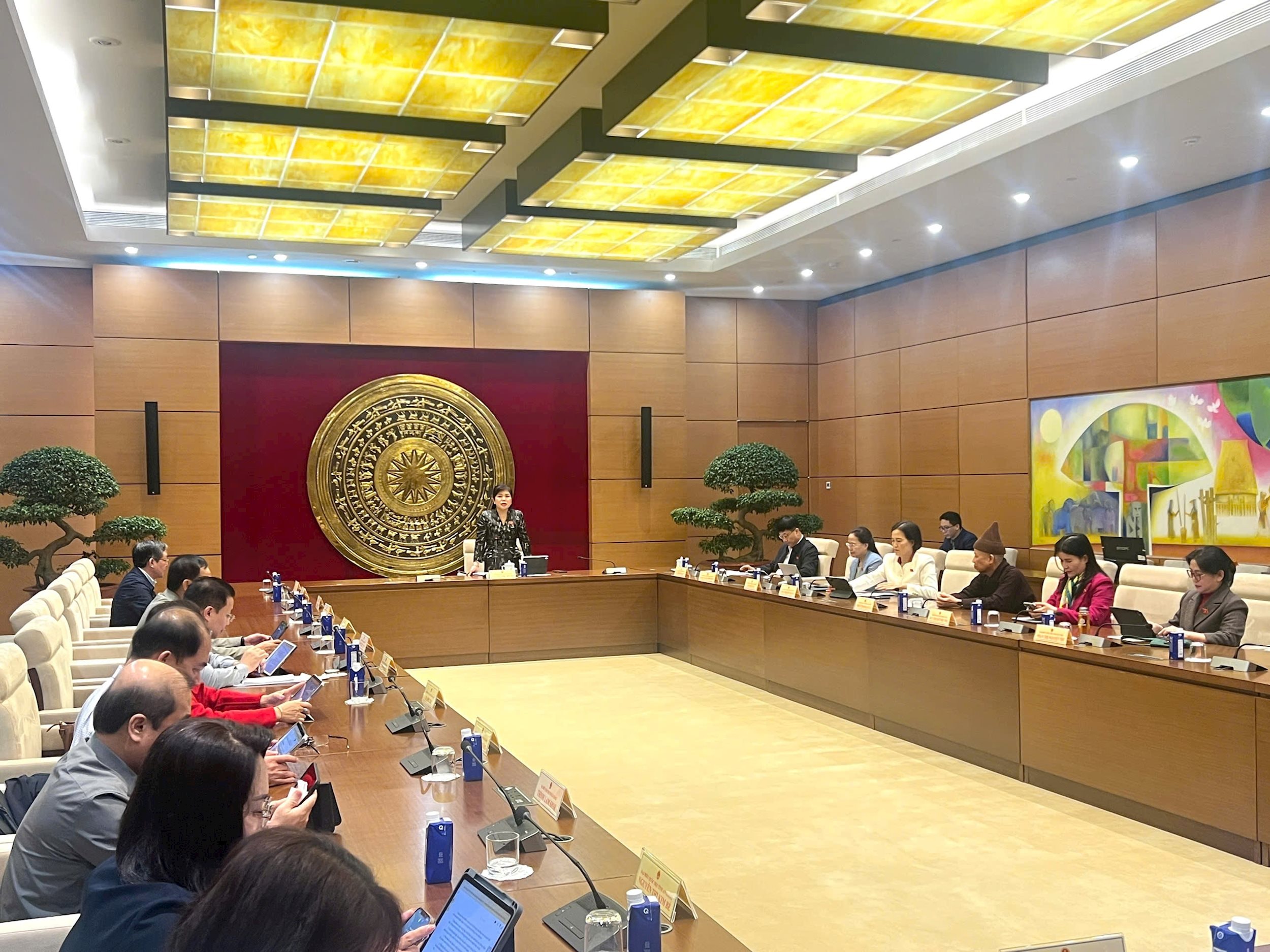
Some opinions suggested continuing to review and carefully compare the provisions of the draft Law with current laws, especially some basic groups of laws related to areas such as: digital infrastructure, data, security, safety; science, technology and innovation; enterprises, investment and finance; education , training and human resource development; ethics, society, rights and obligations, legal responsibilities...
At the same time, research should more clearly position the position of the draft Law in the legal system, clarify the relationship between this Law and related specialized laws (especially specialized laws in the fields of education, health , traffic, press...), ensuring connectivity and synchronization.
The Draft Law stipulates that the National Artificial Intelligence Development Fund (Article 23) is a non-budgetary state financial fund, operating not for profit, established by the Government to mobilize and allocate resources to promote research, development, application and management of artificial intelligence to serve socio- economic development, national defense, security and enhance national competitiveness.
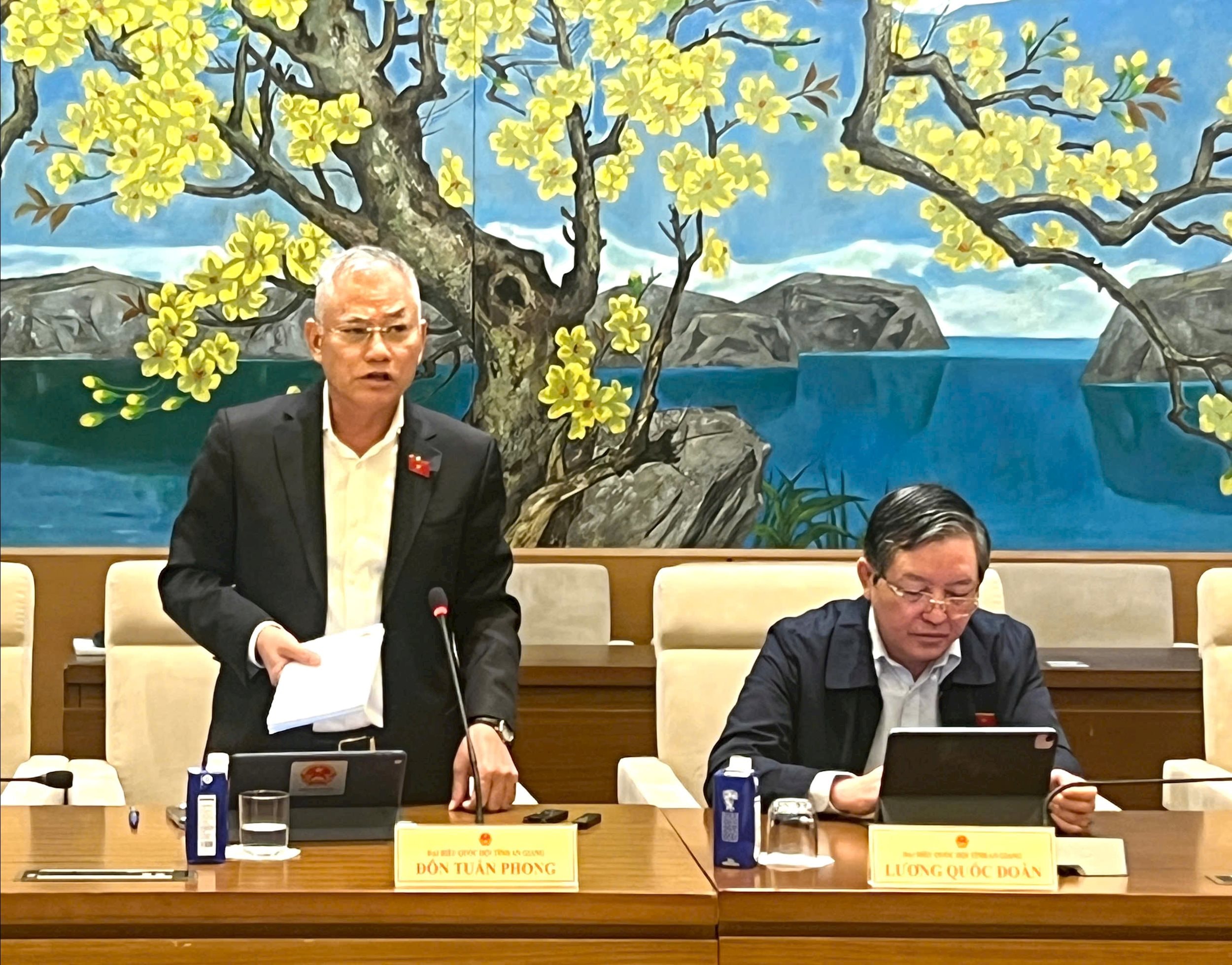
However, National Assembly member Don Tuan Phong (An Giang) said that almost every law includes the issue of funds. Are there too many funds or fund abuse? There are issues that do not necessarily require funds, but the State only needs to have incentive policies to operate and develop on its own. That is, if the State only guides and divides the fields, localities, priority issues and incentives, then businesses and people will automatically participate and develop those fields.
Therefore, delegates suggested that this issue should be carefully considered.
Sharing this view, according to National Assembly Delegate Tran Thi Kim Nhung (Quang Ninh), many initial capital funds need support from the budget, while our resources are still modest. If we disperse too much, we must consider carefully.
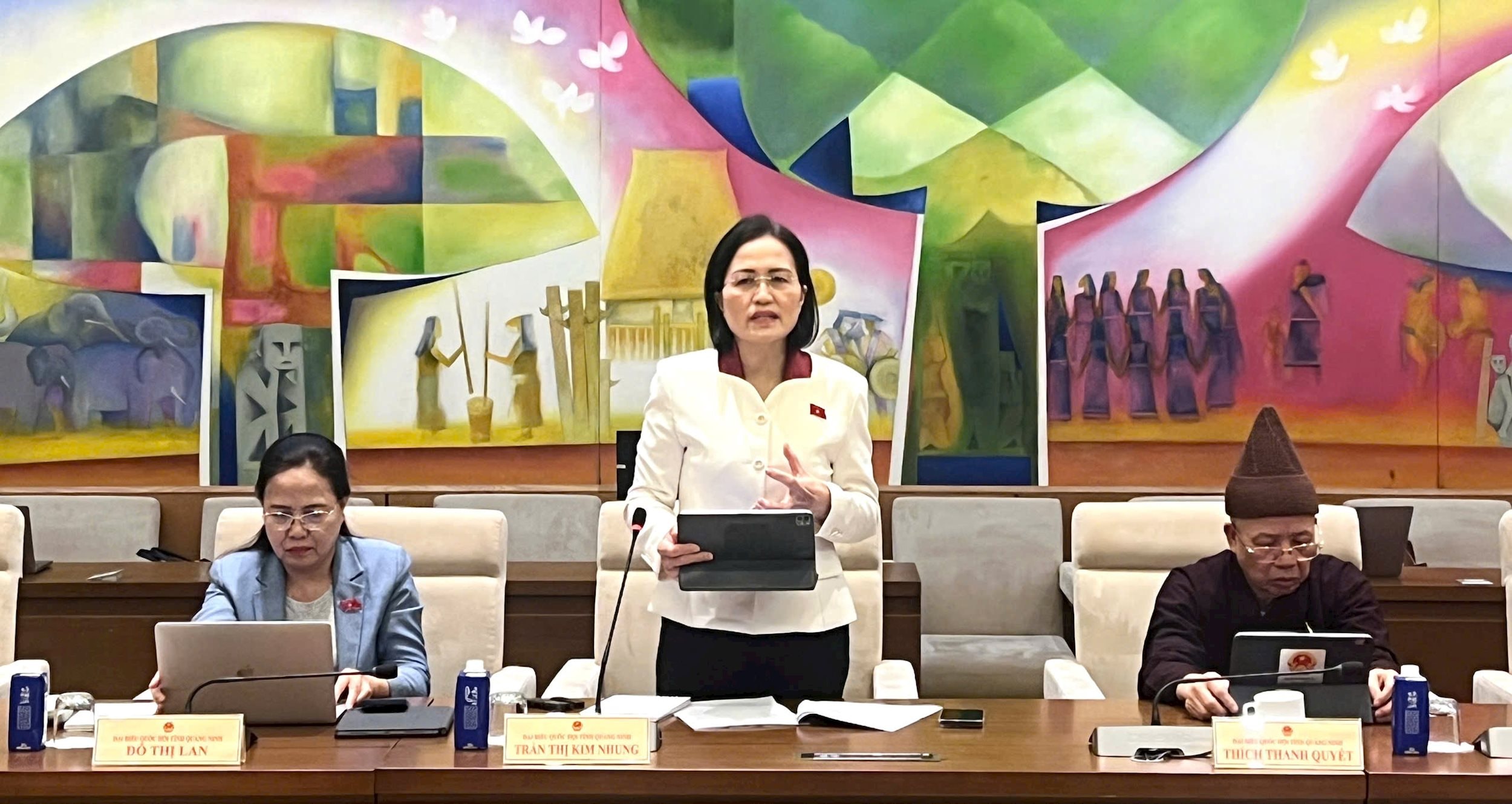
Going into details, delegate Tran Thi Kim Nhung said that the Fund's expenditure content and operating principles are unclear. For example, the Fund's operation according to the principles of publicity, transparency, efficiency, and proper purpose; coordination, and non-duplication with other state financial funds are still general. Currently, there is the National Science and Technology Development Fund and the National Technology Innovation Fund, and the expenditure content of these Funds has overlap.
Therefore, strict regulations on fund establishment when the objectives and sources of fund formation are unclear need to be carefully considered.
Classification of risk levels should be linked to the responsibilities of the subjects.
Expressing his views on managing risks brought about by artificial intelligence, National Assembly member Hoang Huu Chien (An Giang) said that in a technological system, sometimes the technological system cannot cause risks but must take into account the human controller.
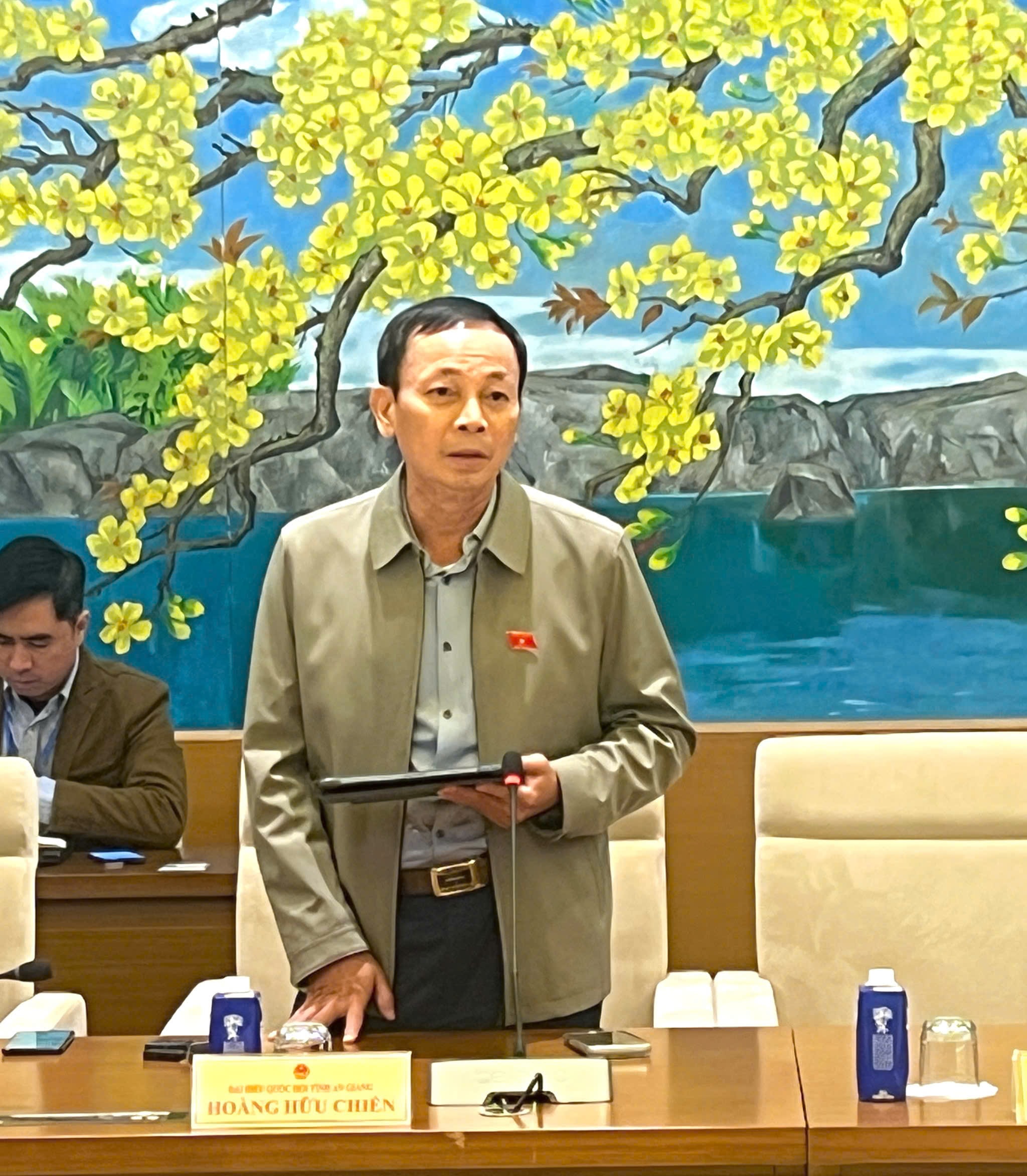
Therefore, it is necessary to have regulations and clearly distinguish between risks from humans controlling technology systems and risks caused by artificial intelligence.
In addition, it is necessary to have clear regulations and timely intervention of State agencies in responding to incidents caused by humans or artificial intelligence. This is also to clearly define the responsibilities of the parties in each case. It is necessary to amend a number of articles in the Penal Code and the Civil Code.
Giving opinions on classifying risks into 4 levels (low, medium, high and unacceptable risk), National Assembly Deputy Nguyen Danh Tu (An Giang) said that the regulation on responsibility for compensation for damages is too general, "compensation according to legal regulations".
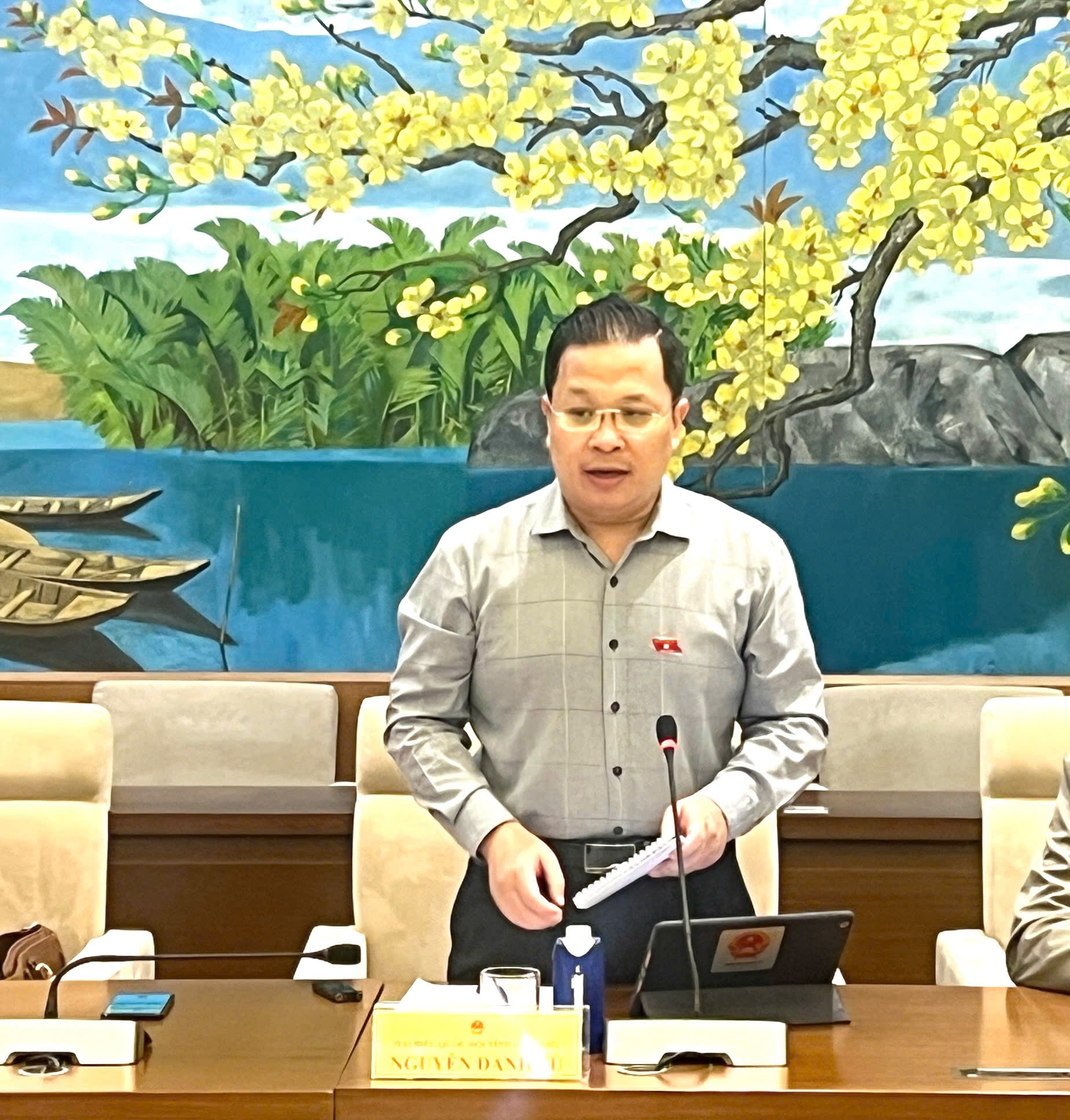
The delegate emphasized that civil liability for artificial intelligence is very important and has specific elements. Determining the fault factor and the behavior of the parties (supplier, developer, deployer, user) is extremely complicated, different from normal behavior.
Therefore, the classification of risks into 4 levels must also be associated with the responsibilities of all 4 subjects: developer, supplier, deployer, and user.
The delegate emphasized that this classification regulation also aims to clearly define the compensation responsibilities of the parties, if any, to avoid disputes and complaints related to risks caused by artificial intelligence or risks from parties using artificial intelligence. In addition, State management agencies also need to promote a sense of responsibility in managing the application of artificial intelligence in society.
Source: https://daibieunhandan.vn/can-nhac-quy-dinh-quy-phat-trien-tri-tue-nhan-tao-quoc-gia-10396520.html


![[Photo] Visit Hung Yen to admire the "wooden masterpiece" pagoda in the heart of the Northern Delta](/_next/image?url=https%3A%2F%2Fvphoto.vietnam.vn%2Fthumb%2F1200x675%2Fvietnam%2Fresource%2FIMAGE%2F2025%2F11%2F21%2F1763716446000_a1-bnd-8471-1769-jpg.webp&w=3840&q=75)
![[Photo] General Secretary To Lam receives President of the Senate of the Czech Republic Milos Vystrcil](/_next/image?url=https%3A%2F%2Fvphoto.vietnam.vn%2Fthumb%2F1200x675%2Fvietnam%2Fresource%2FIMAGE%2F2025%2F11%2F21%2F1763723946294_ndo_br_1-8401-jpg.webp&w=3840&q=75)


![[Photo] President Luong Cuong receives Speaker of the Korean National Assembly Woo Won Shik](/_next/image?url=https%3A%2F%2Fvphoto.vietnam.vn%2Fthumb%2F1200x675%2Fvietnam%2Fresource%2FIMAGE%2F2025%2F11%2F21%2F1763720046458_ndo_br_1-jpg.webp&w=3840&q=75)
![[Photo] National Assembly Chairman Tran Thanh Man holds talks with President of the Senate of the Czech Republic Milos Vystrcil](/_next/image?url=https%3A%2F%2Fvphoto.vietnam.vn%2Fthumb%2F1200x675%2Fvietnam%2Fresource%2FIMAGE%2F2025%2F11%2F21%2F1763715853195_ndo_br_bnd-6440-jpg.webp&w=3840&q=75)
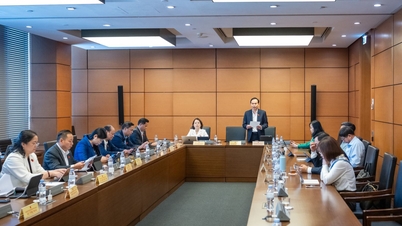

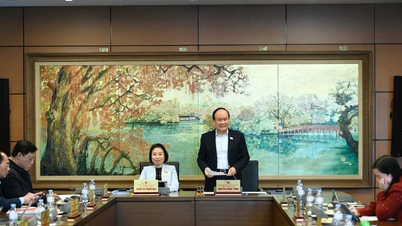
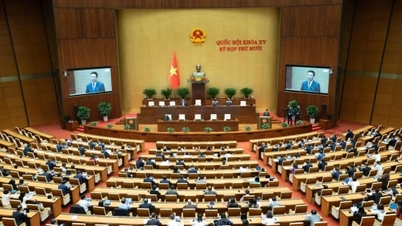

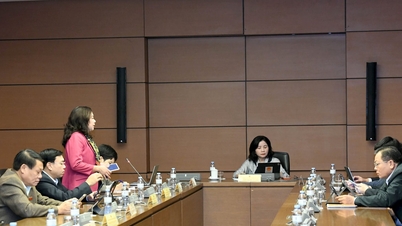








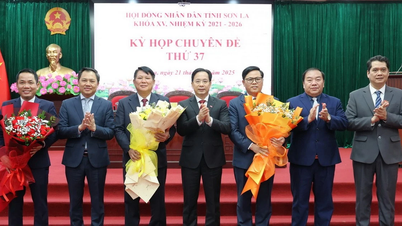





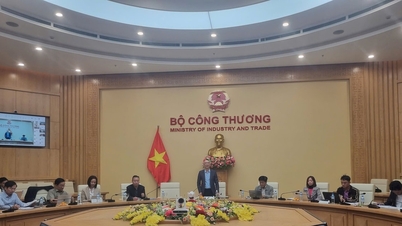


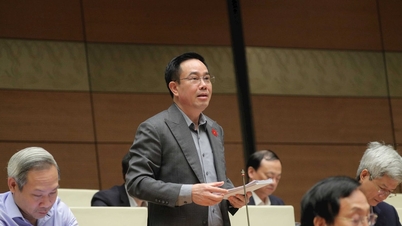



















































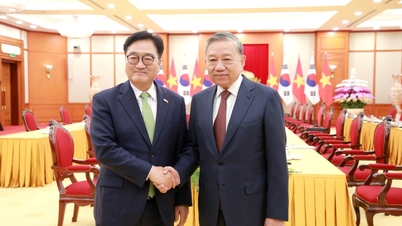
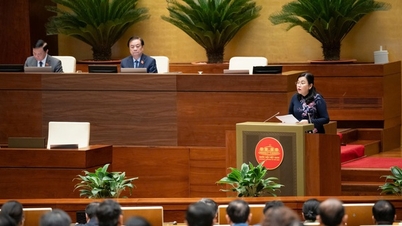








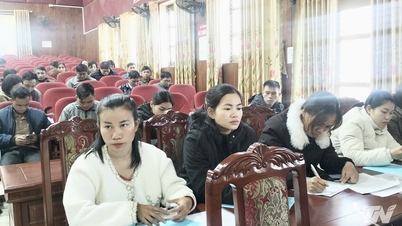



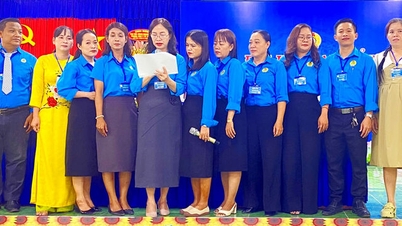














Comment (0)